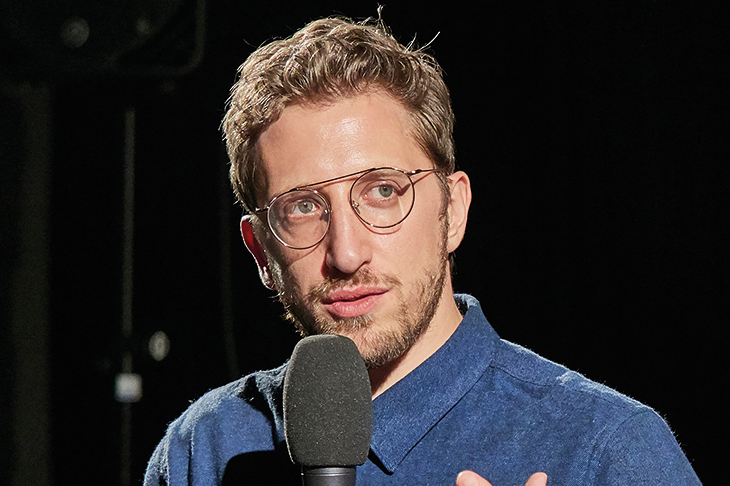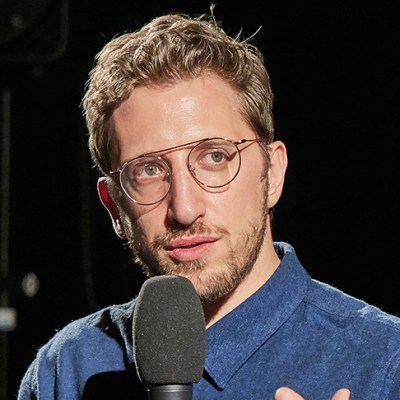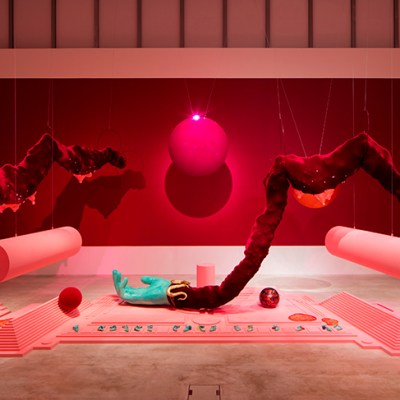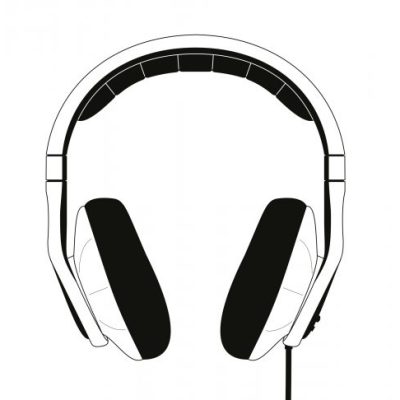In December 2020 a man named Jafet Rodriguez was arrested for smuggling in the town of Derby Line, Vermont, on the Canadian border. The contraband in question consisted of a duffel bag stuffed with six rare-breed parrots. Rodriguez drove from Hazleton, Pennsylvania, that morning and parked near the city’s Haskell Free Library. He left his car, walked over towards the library carpark and, as he stepped off the curb, entered Canadian territory, whereupon he opened the boot of another car to retrieve the exotic birds. Upon returning to his own car, he was intercepted by United States Border Patrol Agents. Rodriguez later claimed that he not been aware he was leaving American soil when he set foot in the Haskell’s carpark, though he granted he had seen the border marker, which consists simply of a small grey plinth with the words ‘United States’ etched on one side and ‘Canada’ on the other, together with an evenly spaced row of terracotta flowerpots. The Haskell Free Library and Opera House and its immediate environs are a strangely liminal space, in the most literal sense; purposely built, just over a century ago, to straddle the Canada–USA border, it is accessible from both sides without a visa – just as long as you leave the same way you entered.
45th Parallel (film still; 2022), Lawrence Abu Hamdan. Commissioned by Spike Island, Bristol; Mercer Union, Toronto; the Toronto Biennial of Art; and the Western Front, Vancouver

It was as a result of Rodriguez’s misfortune that Lawrence Abu Hamdan first heard of the Haskell Library. But when he visited the site shortly after reading about the case, he found it serving quite a different function. ‘There was a student there from Iran,’ he tells me when we meet up one morning in central London. ‘She was living in Seattle and she’d flown to Burlington, driven up to Derby Line. Her parents had got a visa to Canada, flown in to Montreal, driven down. And in the middle of nowhere was the only place that could facilitate this meeting.’ With Donald Trump’s ‘Muslim ban’ still in force, this strange location, in between two formally separated geopolitical zones, had become a site of reunion, an impossible meeting place beyond borders. ‘Families would come and have full meals there!’ Abu Hamdan says. ‘Through the force of their will, they made a new site out of it.’
‘That’s when I understood that something that was built symbolically at the turn of the [20th] century to promote unity amongst an otherwise undivided community – at the time – had transformed from the symbolic to the real. I find that usually it’s the reverse: things are real then they become symbolic.’
45th Parallel (film still; 2022), Lawrence Abu Hamdan. Commissioned by Spike Island, Bristol; Mercer Union, Toronto; the Toronto Biennial of Art; and the Western Front, Vancouver

In Abu Hamdan’s new film 45th Parallel (2022) – commissioned by Spike Island in Bristol, where it has just gone on show (until 29 January 2023) – a ‘private ear’ (played by Mahdi Fleifel) narrates a series of border crossings: bullets flying across the US–Mexican border, drones taking off from Nevada to strike civilians in Pakistan, guns smuggled into Canada via the toilets of the Haskell Library itself. ‘I wanted to re-orient people’s imagination from this idea the US is being invaded – ’ here Abu Hamdan allows himself a slight chuckle ‘ – to seeing the US really as something that is haemorrhaging weapons.’ As Fleifel speaks, he walks through the different rooms of the building past the thick black line painted on the floor marking the Canadian border, to a soundtrack of sinuous pedal steel music by Susan Alcorn Lobato. ‘I knew I wanted music in the room,’ Abu Hamdan says, ‘since it makes even more absurd the line that cuts through the building – because sound, of course, just fills a space. You can’t contain it.’
45th Parallel (film still; 2022), Lawrence Abu Hamdan. Commissioned by Spike Island, Bristol; Mercer Union, Toronto; the Toronto Biennial of Art; and the Western Front, Vancouver

My first encounter with Abu Hamdan’s work came more than a decade ago, via the band Cleckhuddersfax with which he performed for much of his twenties. Over a backing of post-punk rhythms and sometimes cartoonish keyboard lines, he would strip down to almost nothing, screaming into an effects box strapped to his waist in a manner the Quietus once compared to ‘a strangulated Julian Cope’. Today, he is dressed more soberly in aviator spectacles and a shiny black leather jacket, but he insisted that there remained ‘some resonances’ from the band in his work today. By the time Cleckhuddersfax’s debut album was released in 2010, he was already studying at Goldsmiths with the man he claims ‘completely changed my brain’: the architect Eyal Weizman. ‘He made me understand aesthetics in a completely different way – as he’s now making everyone understand aesthetics differently.’
Abu Hamdan has been a fellow of Forensic Architecture since it was founded by Weizman in 2010 and has contributed to several of the Turner Prize-nominated group’s investigations over the years – even as he continued to study for his PhD with Weizman as his supervisor. ‘Coming out of the punk scene in Leeds, I was aways interested in forms of social organisation around music,’ he says. (Abu Hamdan was born in Amman, before growing up predominantly in York; he now lives in Beirut.) ‘The first time talking to Eyal, back in 2008, I told him I was interested in sound and architecture. He said, which sound? Which architecture? From there it got more and more specific. There are whole worlds in the minutiae and that’s what he taught me to start to focus on.’
Since then, Abu Hamdan’s own forensic approach to sound has led from phonetic analyses of the vowel sounds uttered by asylum applicants in Utrecht to interviews with former detainees at Saydnaya Military Prison in Syria about the brutal regime of silence maintained by the guards there. He calls himself a ‘private ear’ (like the character in his new film): other audio investigators do exist – and Abu Hamdan has met with most of them – but whenever he has asked for their help on the kind of geopolitical investigations with which he is engaged they have always refused. ‘They were afraid of it,’ he tells me. For more than a decade, his work has probed the geopolitics of sound and the acoustics of territories in the global north and south, as well as the sometimes sticky entanglements of the two, leading to his Turner Prize win in 2019 (shared with Oscar Murillo, Tai Shani and Helen Cammock). But Abu Hamdan insists he is no ‘golden ear’. ‘It’s not that I’m necessarily better or more qualified than other people to do the work,’ he says. ‘But they’re not doing it.’
‘Lawrence Abu Hamdan: 45th Parallel’ is at Spike Island, Bristol, until 29 January 2023.



